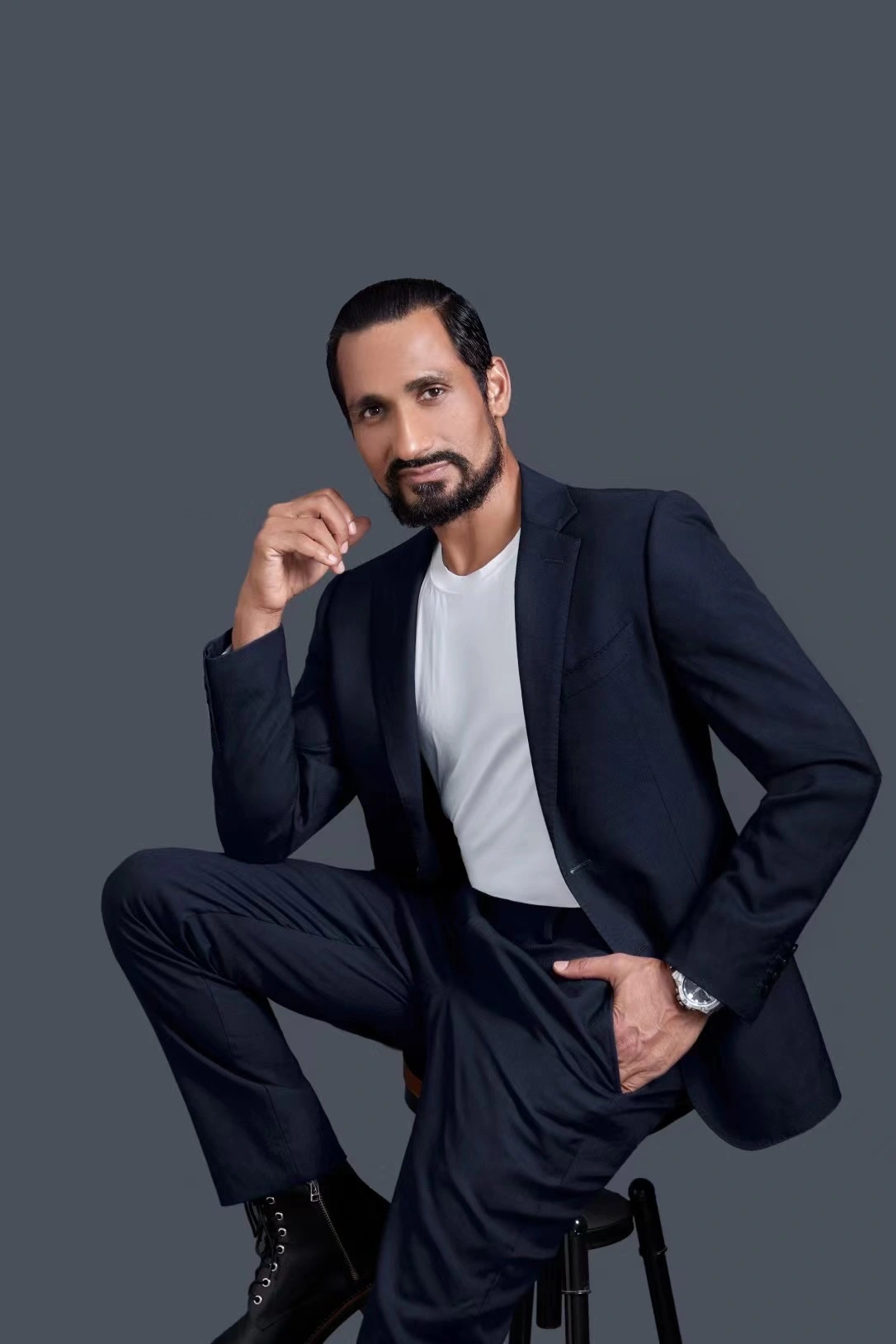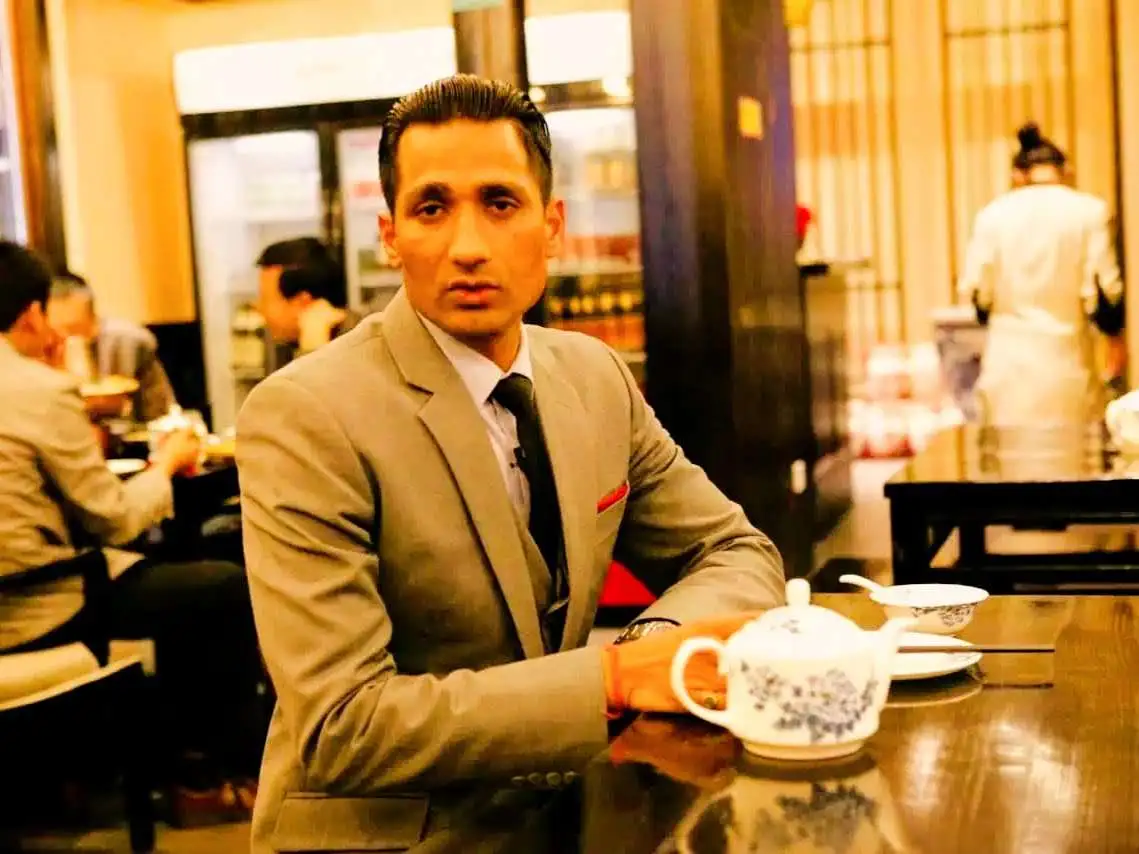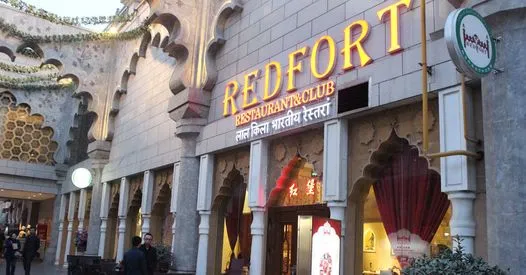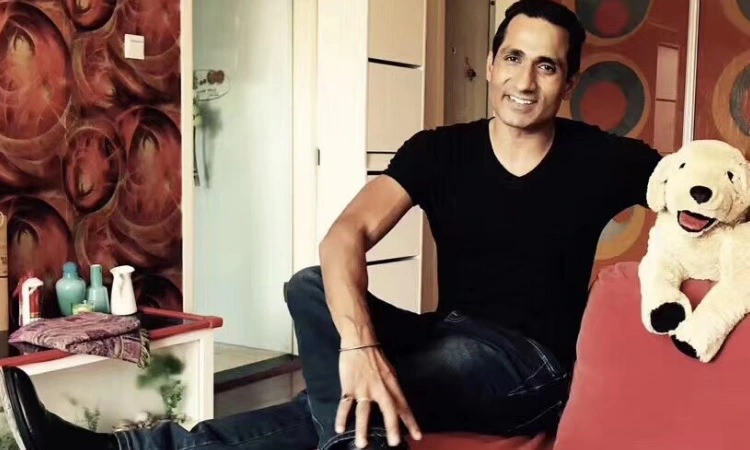(October 24, 2024) Dev Raturi fondly remembers his pahad in Uttarakhand, although nearly 20 years have passed since he last called it home. In 2005, armed with a job offer from a friend, and lots of dreams for his future, Raturi scraped funds together to buy himself a plane ticket to Beijing. As promised, he began his career as a waiter, serving food and wiping down tables at his friend’s restaurant and earning a meagre monthly salary of 1650 RMB.
Five years later, he was fluent in Mandarin, had a steady diet of Bruce Lee films, and had risen through the ranks to become general manager of a steakhouse. He went on to open his own restaurant chain, and in 2015, found the break he had been waiting for all his life – the chance to act in a film. Now, he has worked in over 20 films and web series, and still owns a chain of successful Indian restaurants. He is now such a popular name in China that his life story has found its way into a Chinese textbook.
The Global Indian, who has become a self-appointed cultural bridge between India and China, is a prominent member of a small-ish Indian diaspora comprising around 45,000, a mix of professionals, traders and students. Most of these people are located in major cities like Beijing, Shanghai and Guangzhou. In Beijing, where Dev Raturi started his journey, Indian professionals are found in fields like IT, finance, and education. Additionally, Indian-owned businesses, including restaurants, play a key role in representing Indian culture.

Dev Raturi
Early Life: Leaving Home for Opportunity
Dev grew up in Kemriya-Saur, a village in Uttarakhand’s Tehri Garhwal district. His family lived off farming, and money was always tight. Like many young men from his background, he had to leave school early to help out. He moved to Delhi in the late 1990s, working a series of jobs—anything that paid the bills. But Dev wanted more than just to scrape by. He dreamed of making it big, especially in films. Inspired by Bruce Lee, he was fascinated by the world of cinema.
In 1998, he tried his luck in Bollywood. He auditioned, waited, and hoped, but it never clicked. Dev didn’t have the connections or the polish to break into an industry known for being tough on outsiders. After several years, it became clear he needed to find another path.
“Acting was something I had given up on, but China gave me a second chance.” – Dev Raturi
The Move to China: A Gamble That Paid Off
In 2005, a friend told him about a job opportunity in Beijing. It wasn’t glamorous—a waiter job at an Indian restaurant—but it was a chance to start fresh in a place where no one knew him, and where he might just find his break. “I remember everyone telling me I was making a mistake,” Dev said. “But I had to try something new. I felt stuck.”
The first job was as basic as it sounded. Dev’s salary was 1,650 yuan a month, barely enough to live on. The language barrier was huge, and he knew little about China beyond what he’d seen on TV. But this was where Dev’s stubbornness came in handy. He learned Mandarin on the job, listening carefully to how customers spoke and picking up phrases from his colleagues. By 2007, he had learned enough to be promoted to manager, and his salary rose significantly. “I was always good with people, and I think that’s what helped,” he said. “Even when I didn’t understand everything, I listened.”

A still from a Dev Raturi film
By 2010, Dev had become the area director for a hospitality chain. He was responsible for multiple restaurants, handling operations and marketing. But he wasn’t satisfied with just being an employee. He saw the gap in how Indian culture was represented in China and thought he could do it better. He heard his Indian friends speak ill of China, and his Chinese friends’ unflattering opinions of India, and was hurt by both. However, he came to understand these prejudices came from ignorance, rather than any real malice or hatred. “I realised it is not an easy job being a proud Indian in China. So I thought I must fill this gap because there were very few Indian restaurants, but none of them present you with Indian culture, they just sell the food. I realised that no, this is not enough.”
Entrepreneurial Success: Building a Restaurant Chain
In 2013, Dev opened his first restaurant, Redfort, in Xi’an. This wasn’t just another Indian eatery. Dev wanted it to be an immersive experience of Indian culture, from the decor and music to the food and service. The restaurant became a hit, not just because of the food, but because it gave people something they hadn’t seen before—a glimpse into India. “We didn’t just sell food; we sold an experience,” Dev explained. “When people walked into Redfort, I wanted them to feel like they were in India, not just another restaurant.”
Redfort was successful enough that Dev expanded it to other cities. Over the next few years, he opened more branches across China, each one adding a little more to the experience. Today, he owns a chain of eight restaurants, as well as two Chinese restaurants specializing in local cuisine. His success earned him numerous media appearances, and in 2018, he was named one of the “Top 100 Entrepreneurs in Shaanxi.” His story even became part of a class 7 English textbook in Xi’an.

Red Fort, the Indian restaurant in China owned by Dev Raturi
Breaking into Films: An Unexpected Twist
While his restaurants were thriving, Dev’s childhood dream of acting hadn’t disappeared. His big break came out of nowhere. In 2016, while preparing to open a new restaurant in Sichuan, he was approached by a director looking for an Indian actor for a small role in a Chinese film. “I didn’t think much of it,” Dev recalled. “I thought, why not? It had always been my dream.”
The film was a low-budget project, but it gave him a taste of what he had always wanted. The role wasn’t big, but it was enough to get him noticed. Over the next few years, Dev landed more roles in films and TV shows, playing a variety of characters. By 2019, he had appeared in over 20 productions, including “The Ark,” where he played an astronaut, and “My Roommate is a Detective,” a popular TV series. “I never thought I’d get to do this,” he said. “Acting was something I had given up on, but China gave me a second chance.”
Impact
Dev’s story is now well known, both in China and back home in India. He’s been featured on CCTV, Xinhua News, and other media platforms. His restaurants are popular not just for their food but for the cultural experience they offer. He regularly organizes events that showcase Indian music, dance, and festivals, making his restaurants more than just places to eat—they’re a way for people to learn about Indian culture. “I wanted to do more than just serve food,” he said. “I wanted to bridge a gap. There are so many misconceptions about India in China, and I wanted to change that.”
In 2018, Dev was recognized as one of the “Top 100 Entrepreneurs in Shaanxi,” and his achievements earned him roles such as Deputy Director of Foreign Affairs Committee of Xi’an Baoji Chamber of Commerce. Today, his story continues to inspire many, especially those who feel limited by their circumstances.

Dev is also planning to invest further in his home state of Uttarakhand. “I want to give back,” he said. “I’m working on a plan to open a business there, maybe something similar to what I’ve done in China. It’s important for me to contribute to where I came from.”
For Dev Raturi, success didn’t come the way he expected, but it came nonetheless. From waiting tables to running a chain of restaurants, from dreaming of Bollywood to acting in Chinese films, his journey is a reminder that sometimes, taking the unexpected route leads to the most surprising destinations.
- Follow Dev Raturi on his website.
Also Read: Brewing Big Dreams: How Avinit Bagri is scaling South Indian flavours with The Filter Coffee
Also Read: Tamil Blockbuster ‘Amaran’ achieves global success, elevating Rohman Shawl to stardom
Also Read: Nooresha and Brehadeesh: First Goodwill Ambassadors of Japanese cuisine in India



